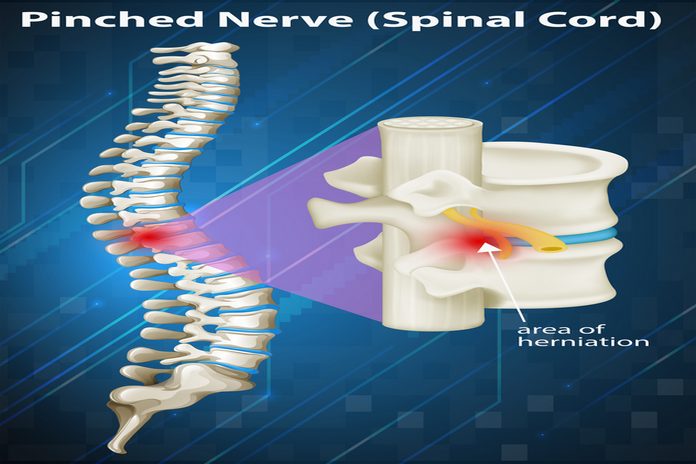Pinched Nerves
Pinched nerves are a common occurrence that can cause pain, numbness, and tingling. A pinched nerve is an injury to a nerve or group of nerves that results in the interruption of proper nerve function. A pinched nerve occurs when too much pressure is applied to a nerve by surrounding tissues, such as bones, muscles, or cartilage. The compression on the nerve can happen from a variety of things such as posture, obesity, or injury. This pressure disrupts the nerve’s normal function and causes pain, tingling, numbness, or weakness.
Pinched nerves can occur at any point along the length of the nerve, and may be caused by a variety of conditions, including bone spurs, herniated discs, or muscle strain. Symptoms of a pinched nerve may include pain, numbness, or tingling in the affected area. The pain is often described as sharp or burning. It may be worse when you move your affected body part or when you press on the area around the nerve. The pain may also radiate from the affected area to other parts of your body.
According to the American Chiropractic Association, approximately 3% of Americans will suffer from a pinched nerve each year. That’s about 9.5 million people! And of those people, about 8.5 million will seek treatment from a healthcare professional.
So, if you’re experiencing pain or numbness in your arm or leg that radiates from your neck or back, you’re not alone. A pinched nerve can be extremely painful and make it difficult to perform everyday tasks. In severe cases, weakness or paralysis may occur. While they are usually not serious, they can be quite uncomfortable. But there is hope! With proper diagnosis and treatment, most people find relief from their symptoms within a few weeks. If you have a pinched nerve, you may be able to find relief with some simple self-care measures. These include rest, ice, and heat therapy.

Pathophysiology
A pinched nerve occurs when too much pressure is applied to a nerve by surrounding tissues. The pressure disrupts the normal function of the nerve. Pinched nerves can occur at any point in the body where a nerve passes through a narrow space. However, they are most common in the neck, shoulders, and lower back. A variety of conditions can cause pinched nerves, including obesity, pregnancy, and arthritis.
The most common symptoms of a pinched nerve are pain, numbness, and tingling. The pain is caused by the inflammation of the surrounding tissues. The pain may be sharp and shooting, or it may be a dull ache. It may get worse with movement. Other symptoms may include tingling, numbness, weakness, or muscle atrophy.
Pinched nerves can occur anywhere in the body, but they are most common in the neck and lower back. They can also happen in the elbows, wrists, and hands. Treatment depends on the severity of the symptoms and may include rest, ice, heat, physical therapy, and surgery.

